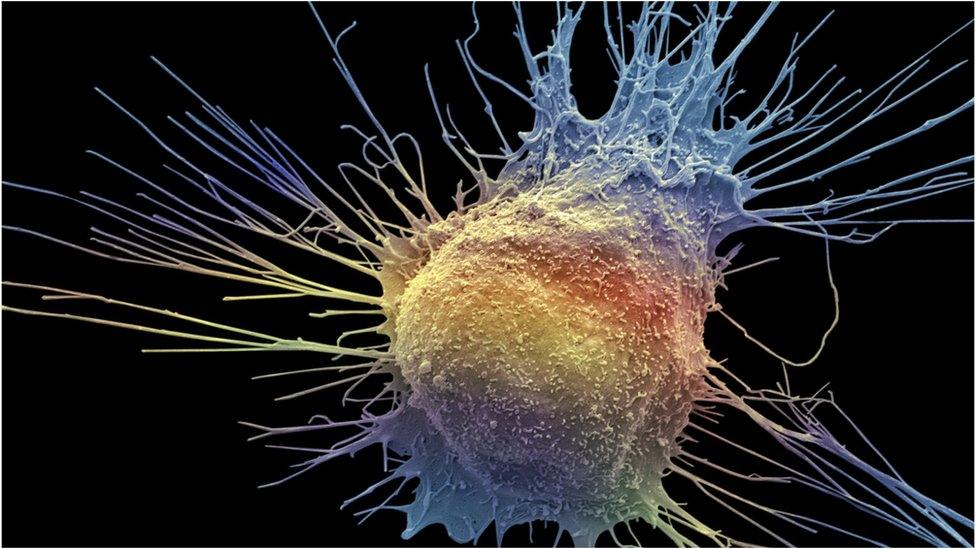Tailored treatment study aims to improve prostate cancer care
- Published

Researchers hope that prostate cancer can be better targeted in future
A study to develop "tailored treatments" for prostate cancer sufferers is being led by researchers at the University of Glasgow.
By selecting drugs best suited to an individual man's cancer, they hope to significantly extend life expectancy.
They predict it has the potential to extend the lives of 9,000 men every year in the U.K.
They will join teams from Belfast, Manchester and London in the £1.4m study launched by Prostate Cancer UK.
Currently, men diagnosed with advanced prostate cancer are typically treated with hormone therapy, and move on to life-extending treatments such as Docetaxel, Abiraterone and Enzalutamide once hormone therapy has stopped working.
Dr Iain Frame, director of research at Prostate Cancer UK said: "Every man's prostate cancer is unique to him and so not surprisingly the way men respond to treatments varies enormously. Clinicians are in effect left to treat patients 'in the dark' - with little idea as to which treatments will work best for which men".
The research would see a shift from the traditional "one size fits all" approach, towards identifying what drives an individual's cancer, and which drugs will work best to stop it.
Tailored approach
The programme, which has been co-funded by Prostate Cancer UK, the Movember Foundation and the Distinguished Gentleman's Ride, will first study men with advanced prostate cancer before it has become resistant to hormone therapy.
The aim is to identify changes in the DNA make up of prostate cancer cells. The researchers will then develop a test to detect these changes and establish which drugs best target them, preventing the cancer from spreading further.
The same technique is already used for women diagnosed with advanced breast cancer.
Dr Robert Jones, Professor of Clinical Cancer Research, is leading the study at the University of Glasgow.
He said "It's already becoming clear in other common cancers, including cancers of the breast, lung and colon, that better outcomes can be achieved if we test the individual patient's tumour biology and then select the most appropriate treatment."
Prostate cancer is the most common cancer in men, with over 47,000 new diagnoses every year in the UK.
About a quarter of these are diagnosed after the cancer cells have spread to other parts of the body, reducing the chances of successful treatment and survival.